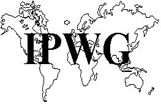|























|
 |
Abstract
Ethnic Borders to a Democratic Society in Kosova:
The UNšs Identity Card
The recent tensions in Kosova and the social unrest in Albania proper in 1997 were scrutinized by the world's academic, diplomatic and media communities with a familiar tone of broad generalizations and ahistorical assumptions. A most troubling impediment to contemporary Balkan societies is the operational assumptions of Western diplomacy in the Balkans, reflecting an uncritical application of archaic readings in the social and political processes of change throughout the "modern" period of the regionšs history. I argue that due to a lack of historically-grounded theoretical and sociological scholarship, the West, especially diplomatically, is left incapable of understanding the social reality of regions such as the southern Balkans. This state of affairs reflects a problematic application by historians and social scientists of essentializations, from which, I note, journalists and policy-makers obtain their information. In past work, (EEPS, 1998) I insisted that Albanians cannot be reduced to a universalized "national" character or political unit by historians of the Balkans. If a new interest in the specificity of identity can be mobilized within the academic community and how groups interact beyond simplistic notions of ethnicity, the ramifications on policy today can be productive. Understanding the internal dynamics of Balkan social history and applying analytical units far more refined than that of ethnicity may give historians and social scientists a new relevance to academia and hopefully transform the way practitioners of history and the social sciences view their work. It is in exploring the historical transformation(s) of the Albanian-speaking population in Kosova that I believe I can shed new empirical light onto my thesis of analytical complexity imbedded in our notions of identity and ethnicity.
I suggest that by looking at this heterogeneous community situated in a variety of socioeconomic contexts outside of the traditional domain of politics in the Balkans, we can add nuance to our analysis to the complexities of Balkan social history. Such an argument has particularly relevance today when the international community is imposing standards of social organization that directly contradicts Kosovašs indigenous, highly decentralized political culture. While the study presented attempts to criticize a general misreading of the Balkans in an interlocking circle of media, diplomacy and academia, its central goal is to identify the specific dynamics in Kosova of how social organization transformed during the height of state-led colonialization. By locating this population through a critical, historical perspective, I will provide a model for understanding current generations of Albanian-speakers and their rationale towards adopting outside modes of social organization, including democratic structures. The picture will ultimately be an unhappy one in which the United Nations administrative regime (UNMIK) and OSCE will be exposed for its highly unsophisticated efforts to centralize a political culture which had resisted such attempts for seventy years.
Based on the last six months of my involvement in the Kosova crisis, I wish to introduce this new aspect to my work, reflecting on the self-marginalization that takes place in respect to local populations (mis)reading their own identity. By this I mean local intellectuals, political aspirants and power-brokers use uncritically the very models of identity my historical work has dismissed in order to interact with an international community impatient with local realities. The core of the proposed presentation will reflect on the dynamic of Kosovar Albanians (and by suggestion, other self-identified societies in the region) conceding their rhetorical autonomy to create a conceptual bridge spanning a perceived gulf between themselves and the outside world. It is the subsequent internalization of their own marginality as members of the (Albanian) Kosovar community that has greatly impacted the articulation of their political demands since the international administration of Kosova began in late May. I will include a survey of what I deem the distinctive path Albania itself will take towards (or away) from democratic reforms in light of my historical findings in the case of Kosova. My work as an historian clearly has relevance to contemporary issues as Kosovars struggle to express their aspirations through mediums often working on principals inherently antagonistic and hostile to their immediate concerns. If we can better understand how this interrelationship works, a new standard of conflict resolution and analysis can be developed, impacting positively how the region deals with its inherent complexities and changing how the international community assumes its role in such efforts.
For the full text please contact the author !
|




